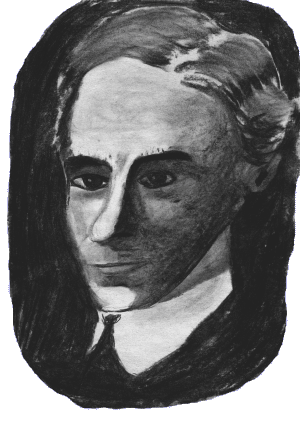
| |

Earl Bertrand Arthur William Russell
Earl Bertrand Arthur William Russell was born into the English upper class in 1872. He lived a very turbulant and long life, in which he broke down the foundation of logic, preached atheism, made acquaintances with famous people like Winston Churchill and D.H. Lawrence, visited the prison several times on behalf of his beleives, and wrote a huge bunch of books.
In his young years, he studied mathematics and later wrote a book together with another mathematician on the foundations of mathematics. In their book, for example, they printed a one page proof, just to prove that 1+1=2. While he was researching, he also found a paradox which today is called Russell's Set Paradox. This is how it works:
First, we make a distinction between two types of sets. The sets which contain themselves as a member and the sets which don't contain themselves as a member.
Let's look at an example: a pear belongs to the set of pears: the set of pears, however, doesn't belong to the set of pears; it is not a pear itself and therefore doesn't fullfill the criterion. This means that the set of pears is not a member of itself.
We now look at a different set, the set of everything which isn't a pear. In this set, you can find books, rats, or president Bush; all these members aren't pears and therefore fullfill the criterion. Since you will find everything in this set which isn't a pear, you will also find the set of pears and the set of everything which isn't a pear as members. That means that the set of everything that isn't a pear contains itself as member.
Russell went a step further and looked at the set of all sets which aren't members of themselves. So in this set, you will find the set of pears, the set of presidents, and many other sets. You won't find the set of everything which isn't a pear, since that set contains itself as a member and therefore doesn't fullfill the criterion. While Russell was looking at this set of sets which aren't members of themselves, he wondered if this set is a member of itself.
If it is a member of itself, it doesn't fullfill the criterion, so it can't be a member of itself.
On the other hand, if it isn't a member of itself, it does fullfill the criterion and therefore has to be a member of itself.
So when Russell found this paradox, he suddenly had a proof that logic, which he thought was the foundation of mathematics, couldn't hold for itself. Today we of course know that his paradox isn't a helpless case; if we use fuzzy logic we can very well get an answer. Russell, however, didn't know about fuzzy logic and was deeply disappointed by mathematics. He gave up mathematics, but that doesn't mean that he stopped turning the world upside down. Throughout his life, which was 97 years long, much too long actually for his adversaries, he kept preaching his ideas as loud and as often as he could. He wrote dozens of books, mathematical books, philosophical essays, novels, and even junk. By the time he died in 1970, he had not only started a whole new period in logic, but he also had a Nobel Prize for literature in his pocket. He is a famous example to show that people with a great talent for mathematics can also be great writers.
